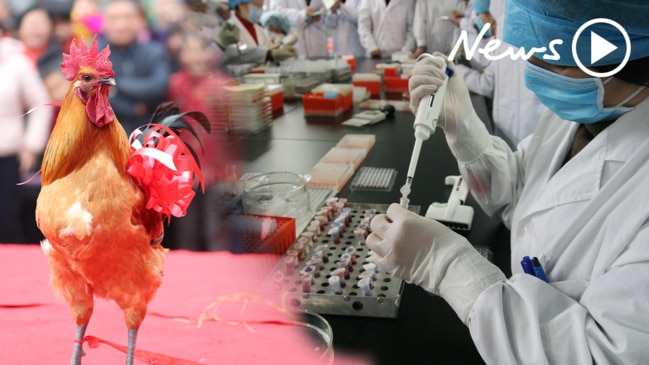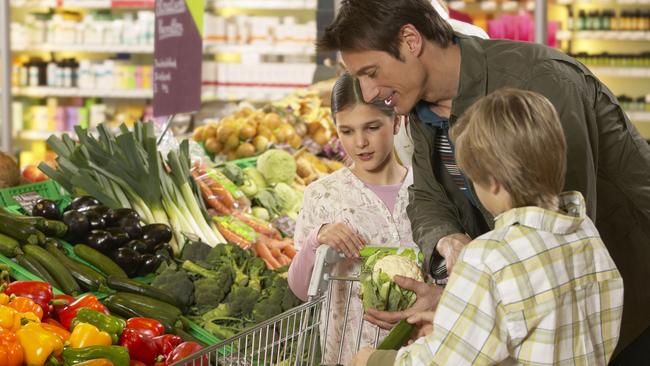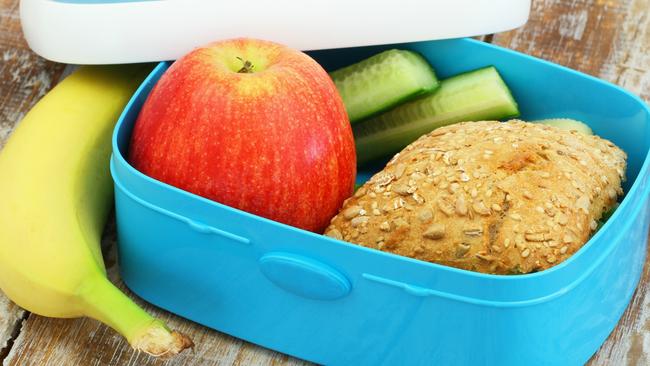Health and wellness boom to drive Aussie businesses into the future
Australia’s vegan, organic, natural and gluten free products are expected to be worth $25 billion by 2030 and the big players in the food and agribusiness being urged to adjust to get their share.

Companies
Don't miss out on the headlines from Companies. Followed categories will be added to My News.
Australia’s local appetite and export of vegan, gluten free and organic and natural products will be worth up to $25 billion by 2030, the country’s science agency predicts.
The CSIRO has delivered its forecast for growth opportunities within Australia’s food and agribusiness and it highlights where the big players will need to turn their focus to in order to claim their share of the delicious health and wellness pie.
CSIRO Futures Senior Economic Adviser Dr Katherine Wynn said the major cash injection can be achieved by innovation and investment from all players in the food industry.
“As consumer demand for healthy foods and foods with added health benefits increases, foods such as enriched yoghurt and fortified breakfast cereals are likely to claim a larger chunk of the $25 billion pie,” she said.

The science agency data says the boom is being driven by a global shift towards sustainable, ethical and healthy foods as well as a spike in export demand for Australian ‘clean and green’ products.
The Growth Opportunities for Australian Food and Agribusiness report states Aussies and our export partners will want a lot more of our meat-free alternatives, natural foods, vitamins and supplements as well as sustainable packaging in the next few years.
The findings line up with the Nielsen Changing Consumer Prosperity figures released earlier this year, which found majority of Aussies were willing to pay more for products that were environmentally friendly or sustainable, contained natural ingredients or carried social responsibility claims.
Mindful drinking: ‘Healthy booze’ trend skyrocketing

Dr Wynn says the CSIRO’s aim to expand on these emerging food markets align with the National Farmers’ Federation strategy to reach $100 billion in farm gate output by 2030. The NFF has been contacted for comment about the findings.
EXPORTS ON THE RISE
The CSIRO says the Asia-Pacific will provide a major source of growth for businesses who are willing to offer health and wellness, sustainable and premium products.
Australian food and agribusiness exports to China, Japan, Indonesia, Korea, India and Vietnam has grown from 42 per cent of total food exports in 1997 to 57 per cent in 2017 and this isn’t expected to slow down based on projected income and population growth in the next five years.
Australia’s reputation for quality, safety and value in food and agribusiness, as well as current and incoming free-trade agreements are likely to make us a good competitor globally.
The global demand for vegetarian and vegan proteins is expected to surge, especially in high vegetarian populations like India. China is expected to want more of our vitamins and supplements, organic, natural and fortified foods in coming years.
OLDER, WISER, HEALTHIER
Australia’s population is expected to blow out to 38 million by 2050, with a 1.3 per cent increase each year. On top of this, residents are living longer meaning products and foods to increase our wellbeing and longevity will be a top priority.
The report says consumers will become more health conscious in the next decade and this will result in us spending more on healthier foods and drinks.
Australians are already paying big bucks to stay healthy, with more than 40 per cent ensuring they eat fresh fruit and vegetables regularly. Meanwhile, 24 per cent have cut sugar and fat from their diets. The average spending per person on health products in Australia has increased 1.7 per cent yearly.
This is likely to increase with personalised nutrition costs (genetic testing, meal planning and coaching) likely to be valued at $550 million by 2030.

‘I’M ALLERGIC TO …’
Ninety per cent of the country’s food allergies are attributed to either milk, eggs, peanut, tree nuts, sesame, soy, fish, shellfish and wheat and social awareness is on the rise. This means gluten, lactose, dairy, natural and additive free foods are expected to dominate supermarket shelves and meal requests.
By 2030, the CSIRO says domestic and export opportunities here will be worth $4.2 billion with 4 per cent yearly growth. The key players predicted to drive this boom are milk alternatives, gluten free bread and lactose free milk. About 12 per cent of Aussie already avoid wheat, gluten, dairy or lactose due to intolerances or dietary preferences.
Soy sauce hoax goes horribly wrong
Dude food making some Aussie men sick
FORTIFIED, FUNCTIONAL, PROBIOTIC
From baby formula to meals to aid in digestion and heart health in older age, consumers want more nutritious food regardless of age. The CSIRO predicts shoppers will by buying more functional milk formula, fortified breakfast cereals, probiotic yoghurt and sports drinks in the future.
This is expected to hit $5.5 billion domestically and provide an export value of $4.2 billion by 2030. At home this will likely be led by sports nutrition and performance products while overseas, particularly Asia, will up their demand for fortified milk formula based on local food and safety standards and reputation.

VITAMINS AND SUPPLEMENTS
Growing concerns for eye, gut, mobility, joint and mental health are driving an increase in ‘magic’ pills, powders and potions to fix ailments. It’s estimated vitamins and supplements will be worth $5.2 billion by 2030. This will likely be due to China’s demand for authentic and safe supplements. It’s claimed there are more than 40,000 Daigou operating across Australia so in future local businesses are expected to adapt via instore retail and online to cater to this sort of demand.
What to do when your kid goes vegan
Aussies’ vegan diets are growing
VEG LIFE TO SURGE
Whether it’s for ethics, cultural, religious, environmental or health reasons there will be more vegans and vegetarians in Australia in the next decade. The estimated values of meat and dairy free foods will be $4.1 billion domestically and $2.5 billion via exports by 2030.
Originally published as Health and wellness boom to drive Aussie businesses into the future
